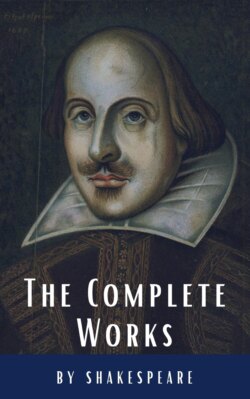Читать книгу The Complete Works of Shakespeare - William Shakespeare - Страница 158
На сайте Литреса книга снята с продажи.
Scene IV
ОглавлениеEnter Rosalind and Celia.
Ros. Never talk to me, I will weep.
Cel. Do, I prithee, but yet have the grace to consider that tears do not become a man.
Ros. But have I not cause to weep?
Cel. As good cause as one would desire, therefore weep.
Ros. His very hair is of the dissembling color.
Cel. Something browner than Judas’s. Marry, his kisses are Judas’s own children.
Ros. I’ faith, his hair is of a good color.
Cel. An excellent color. Your chestnut was ever the only color.
Ros. And his kissing is as full of sanctity as the touch of holy bread.
Cel. He hath bought a pair of cast lips of Diana. A nun of winter’s sisterhood kisses not more religiously, the very ice of chastity is in them.
Ros. But why did he swear he would come this morning, and comes not?
Cel. Nay certainly there is no truth in him.
Ros. Do you think so?
Cel. Yes, I think he is not a pick-purse nor a horse- but for his verity in love, I do think him as concave as a cover’d goblet or a worm-eaten nut.
Ros. Not true in love?
Cel. Yes, when he is in—but I think he is not in.
Ros. You have heard him swear downright he was.
Cel. ‘Was’ is not ‘is.’ Besides, the oath of [a] lover is no stronger than the word of a tapster; they are both the confirmer of false reckonings. He attends here in the forest on the Duke your father.
Ros. I met the Duke yesterday, and had much question with him. He ask’d me of what parentage I was. I told him of as good as he, so he laugh’d and let me go. But what talk we of fathers, when there is such a man as Orlando?
Cel. O, that’s a brave man! he writes brave verses, speaks brave words, swears brave oaths, and breaks them bravely, quite traverse, athwart the heart of his lover, as a puisne tilter, that spurs his horse but on one side, breaks his staff like a noble goose. But all’s brave that youth mounts and folly guides. Who comes here?
Enter Corin.
Cor.
Mistress and master, you have oft inquired
After the shepherd that complain’d of love,
Who you saw sitting by me on the turf,
Praising the proud disdainful shepherdess
That was his mistress.
Cel.
Well; and what of him?
Cor.
If you will see a pageant truly play’d
Between the pale complexion of true love
And the red glow of scorn and proud disdain,
Go hence a little, and I shall conduct you,
If you will mark it.
Ros.
O, come, let us remove,
The sight of lovers feedeth those in love.
Bring us to this sight, and you shall say
I’ll prove a busy actor in their play.
Exeunt.
¶
